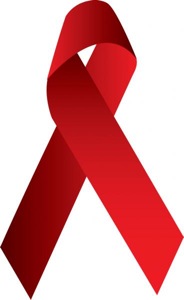Editor's Note: Although this article is about a day last week, Dec. 1, I still think it is important to read about. AIDS affects people every day, all over the world, and the best way to stop it and find a cure is to raise awareness. As this can be a controversial issue, I remind all of you to please be respectful in your discussions in the BBS.
Today is one of those strange "holidays" that you observe, commemorate, instead of celebrating. December 1st is World AIDS Day, which today marks 20 years of a day to reflect upon the profound impact HIV and AIDS have had since they arrived on the global health scene. It's a day to remember that despite tremendous scientific advancements and international legislation, HIV/AIDS affects over 30 million people worldwide, a number that doesn't even include the families, friends and caretakers whose lives are also forever altered by the disease.

As a member of the last generation to be born in a world without HIV/AIDS, I find it difficult to be optimistic about the possibility of returning to a world without this pandemic. Research into developing an HIV vaccine has stalled somewhat, infection rates in young, urban and developing communities are on the rise, and funding for education and research are not spared in this time of global economic troubles. Somehow we live in a world where initiatives like PEPFAR (a surprisingly overlooked success of the Bush administration) exists, while an Indonesian province tries to haphazardly criminalize HIV-positive citizens. The abject fear of HIV that existed while I was growing up has somehow been replaced by an odd complacency about the seriousness of the disease, which is baffling if you just consider the extent of the crisis in places like South Africa and India.
No matter how you spent the day, I hope that you at least took a moment to think about HIV/AIDS in some way. Whether quiet reflection, prayer, activism or getting tested, it all counts because the lives matter, every single one of them. In a press release today, the United Nations Secretary-General reminds us that "Your engagement can mean the difference between life and death for countless people around the world."
Some places for more information about World AIDS Day and HIV/AIDS in general:
World AIDS Day website - http://www.worldaidsday.org/
UNAIDS - http://www.unaids.org/en/
World Health Organization - http://www.who.int/en/
AVERT - http://www.avert.org/
Author's Note: Sources:
http://afp.google.com/article/ALeqM5jGpanNE66SP0zIl4J0m8FxHR3e1A
http://www.pepfar.gov/
http://news.bbc.co.uk/2/hi/asia-pacific/7758331.stm
http://www.google.com/hostednews/afp/article/ALeqM5iIIOo-W9uwDf-x5acKFJgr7x6KGA
Editor's Note: For more blogs from Dr. Rabiah, visit Science Chicago's website at: http://www.sciencechicagoblog.com